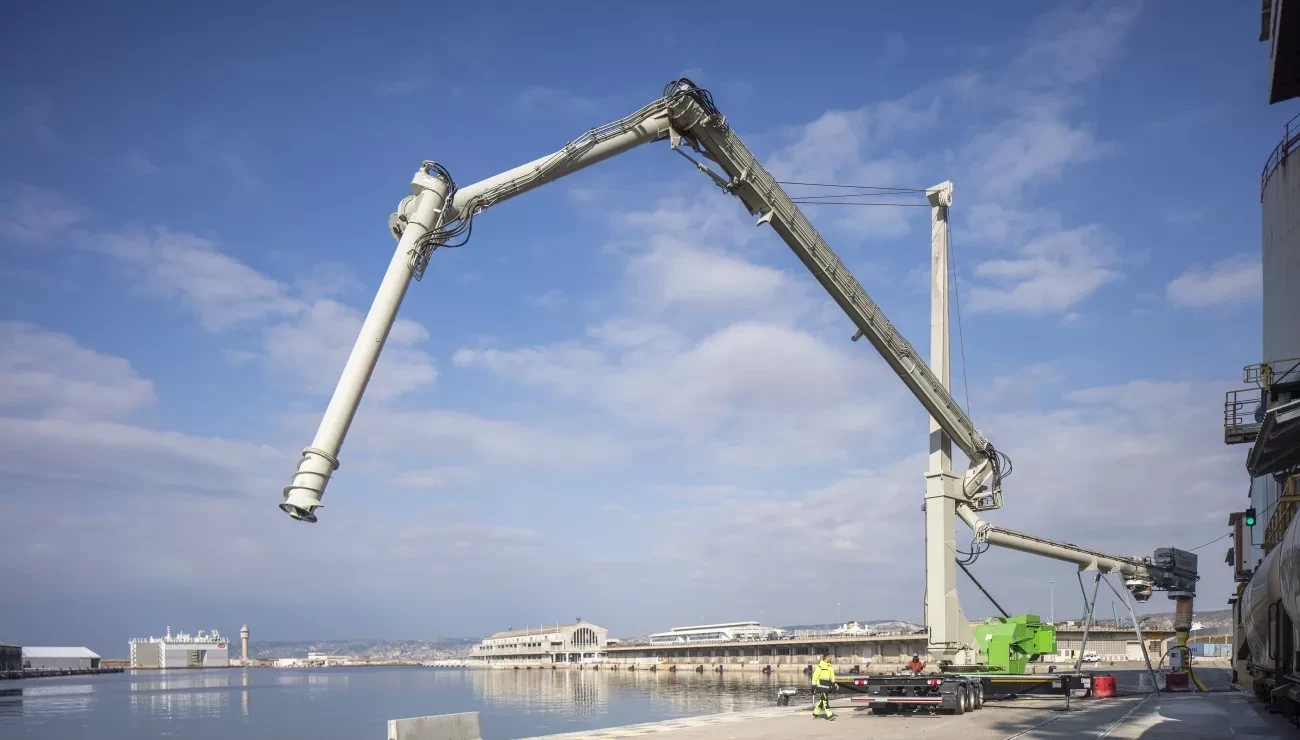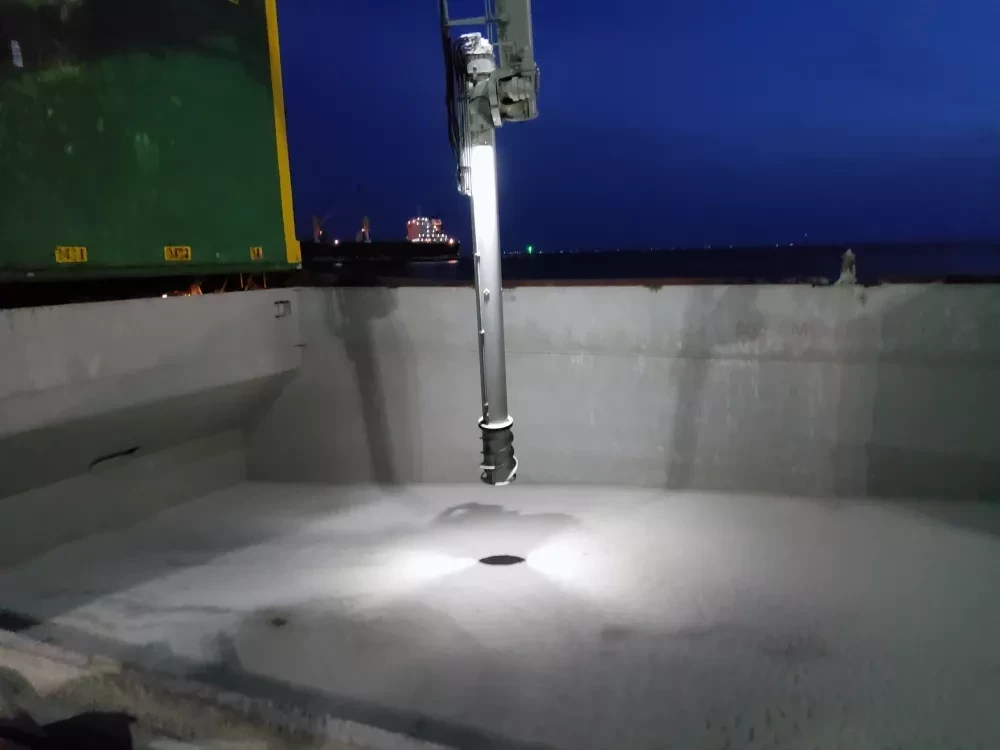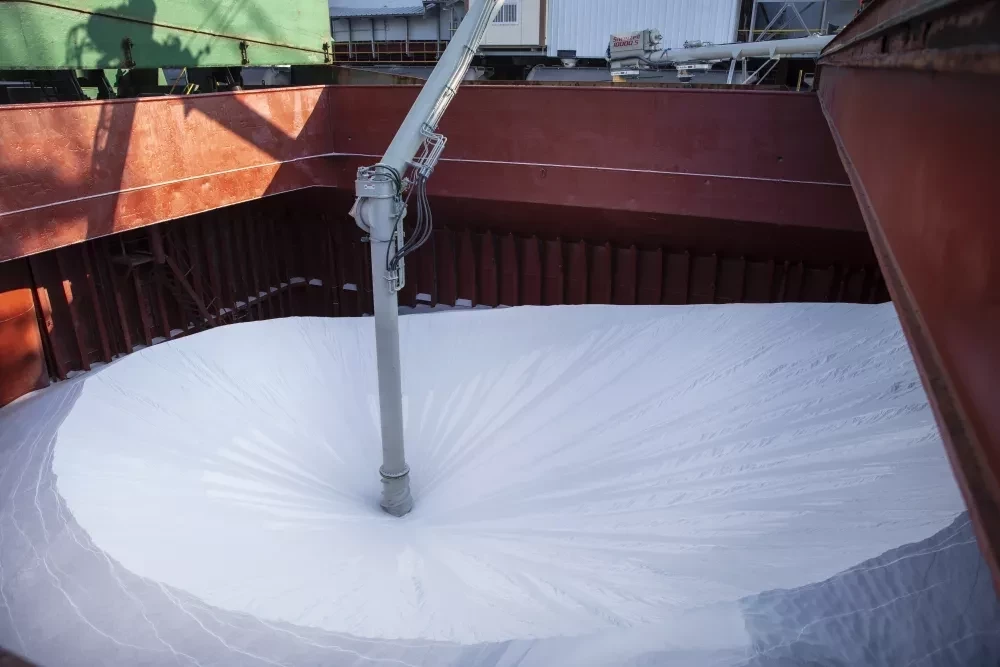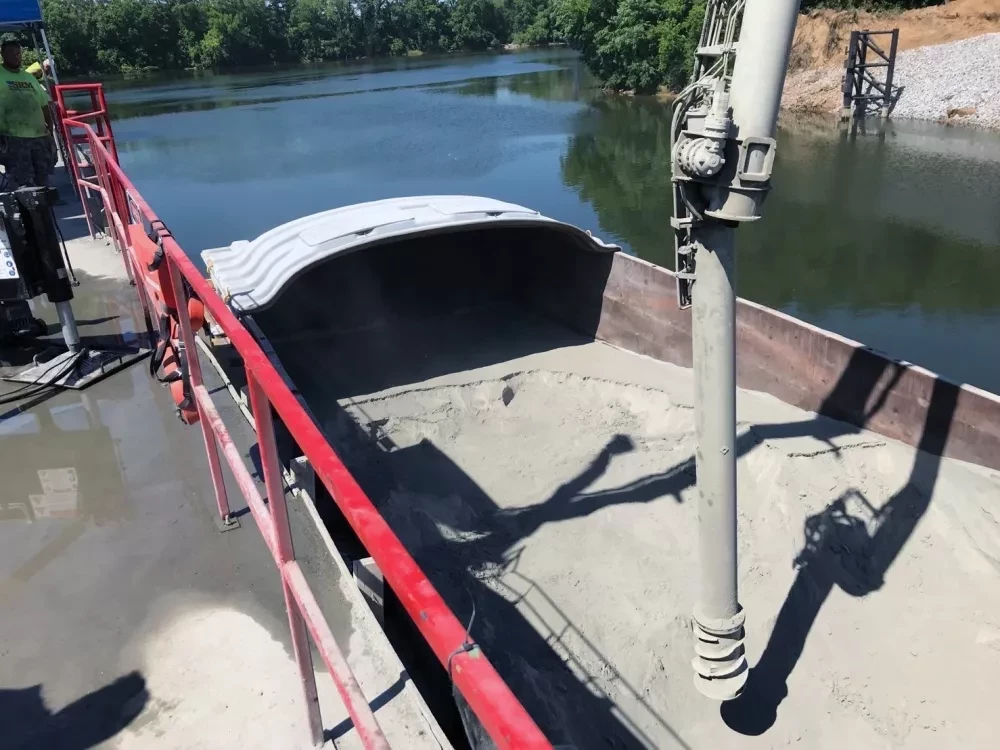
More Siwertell road-mobile unloaders set to work in the US
19 Feb 2024Building-back America continues to place significant capacity demands on US cement importers, and with new carbon tariffs on the horizon, selecting a ship unloading system that protects the environment, and offers flexibility, is a wise choice.
Between 2013 and 2022, cement imports in the United States (US) increased almost fourfold, reaching 24 million metric tons, according to US Geological Survey, and remained close to this elevated level well into 2023. According to the US publication Global Cement, at the beginning of 2023, overland cement imports to the US, such as from Mexico, were falling, to be replaced by increased imports from Turkey. Vietnam, another exporter to the US, increased its cement production by 9.1 percent.
Delayed construction projects restarted post-pandemic, and the US Bipartisan Infrastructure Bill, dedicated to rebuilding America’s infrastructure, are continuing their ripple effect, with US operators still having to meet significant cement demands. Several US operators have turned to Bruks Siwertell to help meet their increased capacity requirements.

Showcasing capabilities
In 2020, one such company placed an order for a Siwertell 5 000 S road-mobile ship unloader to serve cement handling operations at its site in Mokena, Illinois, close to the Great Lakes. Since its delivery in the same year, the unloader has been used to transfer cement cargoes directly from vessels into trucks, delivering a continuous rated unloading capacity of 300t/h for vessels up to 5,000 dwt.
The Siwertell road-mobile unloader does not require a permanent installation on the quayside, a fact which gives it a considerable competitive advantage. On top of being able to deploy and repack in under an hour, the ship unloader can handle large shipments of Portland cement relative to its size.
Road-mobile units also offer benefits common to all Siwertell screw-type unloaders, low power consump¬tion, very efficient through-ship profiles, an enclosed conveying line from the ship to shore, containing dust emissions, eliminating spillage, and ensuring a safe working environment with minimal to no clean-up.
These attributes make the Siwertell road-mobile ship unloader not only the best-in-class for this operator’s purposes, but a huge efficiency improvement compared with the strategy of importing and handling cement in bags, which dominated in the US until recently.

Best in class
“Before ordering this unit, the operator invested time in researching various types of unloading equip¬ment and concluded that the Siwertell road-mobile unloader was the best solution for its application. They are also one of the only systems that can dis¬charge cement direct to trucks,” says Ken Upchurch, SVP Sales and Marketing, Bruks Siwertell.
It is probably little surprise, then, that when another road-mobile unloader was needed, the company knew who to call. “The choice of unloader is a very important one, as it is a piece of equipment with a lifespan of many years,” continues Upchurch. “This makes it a really big deal when a customer decides to invest with us, and a great privilege when, as in this case, it endorses our product by doing it a second time.”
Second system up and running
The new Siwertell 5 000 S road mobile unloader was delivered in May 2023 and is used to handle cement imports at a facility across the country in Harvey, Louisiana, unloading cement shipments from barges up to 5,000 dwt, also at a continuous rated capacity of 300t/h.
There are various reasons why the growing US cement import market is looking to Bruks Siwertell’s mechanical screw-type unloaders, over bagged cement, grabs, and pneumatics. With efficiencies and low power demands aside, Siwertell unloaders can also withstand digging forces if cargoes have become crusted in the hold, and their market-leading through-ship capacities. This is achieved through the pendulum motion of the vertical arm, which can move +/- 30 degrees to reach all areas of the cargo hold, even under coamings. This also reduces the need for payloader assistance.

Cleaning up cement
Environmental considerations are only going to increase, with several economies including the US considering a variant of carbon border adjustment mechanism (CBAM) to tackle ‘carbon-leakage’ associated with imports of cement from other economies. The European Union (EU) has also recently introduced its own CBAM, effectively levelling the price on the production of cement entering the EU, and encouraging cleaner industrial pro¬duction in non-EU countries.
This means that the waste reduction afforded by Siwertell dry bulk handling equipment will be all the more important. “These new polices demonstrate that environmental credentials and scrutiny are under the spotlight. Technology that protects the environment is not a nice-to-have, but essential,” says Upchurch. “Many importers across the US and elsewhere still have yet to invest in the best-in-class equipment for the job. But if you are importing cement, you cannot do better than a Siwertell ship unloader for ensuring your environmental, efficiency and capacity requirements are met; exactly what this operator opted for.”
PLEASE CONTACT US FOR MORE INFORMATION

 Bruks-Siwertell
Bruks-Siwertell